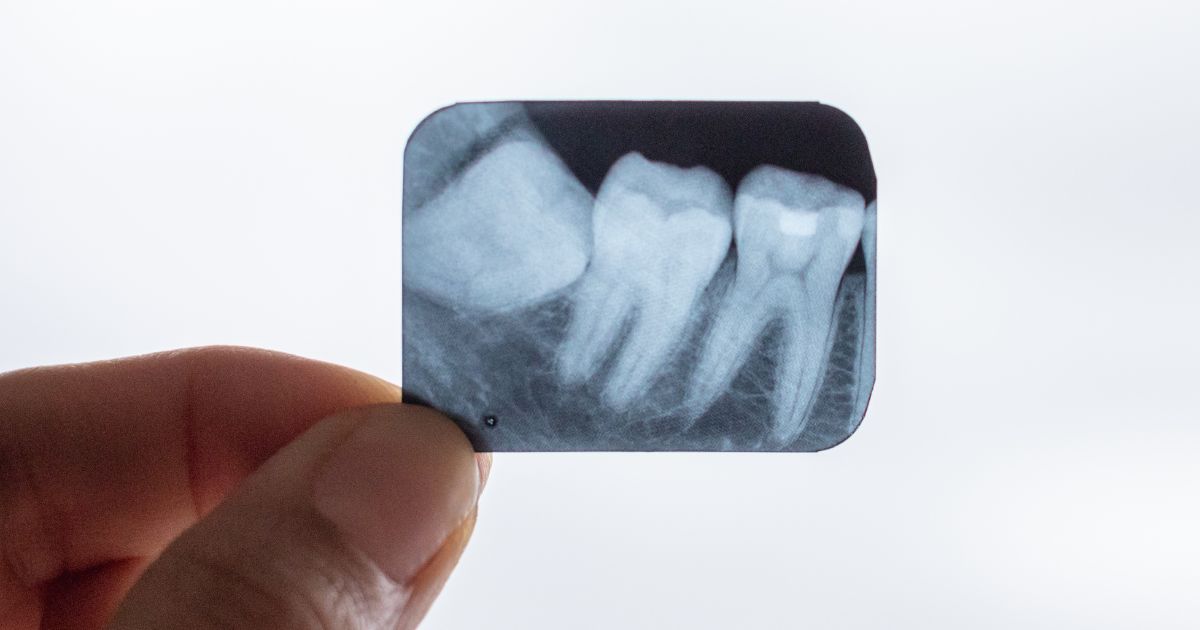Wisdom teeth extraction is one of the most common oral surgeries. Wisdom teeth are located at the very back of the mouth and erupt in the late teens or early adulthood, though not all wisdom teeth fully erupt.
Generally, most people’s mouths do not have enough room to accommodate wisdom teeth, and they only partially erupt or come in at an angle. When this occurs, the wisdom teeth become impacted, requiring surgical removal to prevent overcrowding, gum disease, tooth decay, and cysts.
Wisdom teeth extraction is typically performed under general anesthesia, and though it is considered a minor surgery, fully recovery may take up to two weeks. Following surgery, your oral surgeon will provide you or your caregiver with surgical instructions for aftercare to minimize pain, promote healing, and avoid complications, such as:
- Apply gauze: Your doctor will place gauze along the treated areas to absorb bleeding. Gently bite on the gauze to maintain pressure. Replace the gauze every 20 to 30 minutes until bleeding subsides, which may take several hours. Expect a little oozing for up to 24 hours, but gauze is not needed the entire time. If bleeding persists, gently bite on a moistened tea bag for 20 minutes. Call your doctor if you experience any additional bleeding or the oozing continues longer than 24 hours.
- Rinse: After 24 hours, dissolve 1/2 teaspoon of salt in 8 ounces of warm water. Hold it in your mouth and gently swish. Do not rinse vigorously to avoid opening the wounds. Continue to rinse in this manner after you eat for six to seven days.
- Medication: Your doctor will prescribe pain medication and sometimes antibiotics to help control your pain and prevent infection, along with recommendations for over-the-counter medications to control fever. Take all as prescribed.
- Apply ice: Place an ice pack against your jawline or cheek for pain. Apply it for 20 minutes then remove for 20 minutes for 24 to 48 hours if necessary. Rotate sides if all four teeth were extracted.
- Drinking: Keeping hydrated is important following surgery. Drink clear beverages, such as water, ginger ale, broth, or juices. Avoid hot liquids until the numbness wears off. Do not use straws or smoke until your mouth is fully healed in up to two weeks. The suction required for straws and smoking can cause your wounds to open and increase infection risk.
- Prevent nausea: Prescription pain medication can cause nausea and vomiting, and vomiting opens the wounds and subjects the surgical site to bacteria and infection. Take medication with food to prevent nausea.
- Rest: You should limit your activity following anesthesia, including excessive physical activating, driving, and going to work. Expect to be off work for several days, and rest as much as possible. You will need someone to drive you to and from the surgery and remain with you for the first 24 hours.
- Eating: You may begin eating after a few hours once bleeding has tapered and you are able to remove the gauze. For the first 24 hours, consume soft and cold food and drinks such as yogurt or ice cream that do not require chewing. You can progress to warm foods and drink the following day and continue to consume soft foods for a few days before gradually moving to solids.
South Jersey Oral Surgeons at Lanzi Burke Oral & Maxillofacial Surgeons Perform Wisdom Teeth Extraction Surgery on a Regular Basis
Wisdom teeth generally present in the late teenage years, and most patients require surgery to remove them. If you have noticed new wisdom teeth emerging or are experiencing painful symptoms, our skilled South Jersey oral surgeons at Lanzi Burke Oral & Maxillofacial Surgeons can help. Call us at 856-582-4222 or contact us online to schedule a consultation. Located in Washington Township, Haddonfield, and Woolwich Township, New Jersey, we help patients throughout South Jersey.


